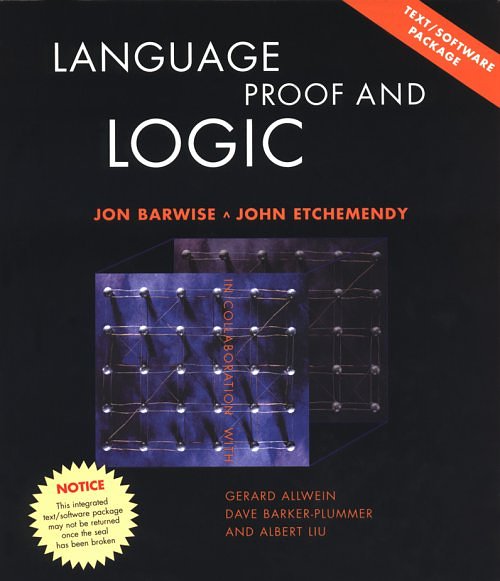| Logic |
In Poetic Diction Barfield was already well aware of logic's limitations:
In the tradition of Nietzsche and Heidegger, Barfield finds logic a power secondary in importance to poetry's more genetic role.2 Logic, we are told, "can make us more precisely aware of the meaning already implicit in words. But the meaning must first of all be there and, if it is there, it will always be found to have been deposited or imparted by the poetic activity" (PD 31). Prone to the establishment of a fortress mentality, logic cannot free the human spirit; only the poetic can do that:It is quite true [as linguistic analysis argues] that logical speech is tautologous and cannot add to the sum of meaning or of knowledge.1 But the historical function of logical method has not been to add to the sum of knowledge. It has been to engender subjectivity-- self-consciousness. Once this has been achieved, as in the West it has largely been achieved, today, there is no more that logic can do. Self-consciousness is indeed a sine qua non of undreaming knowledge, but it is not knowledge, it is more like its opposite; and once it has been achieved, logic, as far as the business of knowing is concerned, is functus officio. Or rather its surviving function is, to prevent a relapse. (30)
[The] "soul," latent in words, and waiting only to be discovered, is for the most part a kind of buried survival of the old "given" meaning under later accretions; or, if not of the "given" meaning itself, then of an old "created" meaning which has been buried in the same way. . . . Like sleeping beauties, they lie there prone and rigid in the walls of Castle Logic, waiting only for the kiss of metaphor to awaken them to fresh life. (PD 115)
| See in particular Poetic Diction, passim, "Polar Logic" (WCT 179-93), 'reason" (WCT 104-114), "Ideas, Methods, Laws" (WCT 115-30). |
1On logic's
tautological nature Barfield adds:
|
| 2Not surprisingly, Barfield quotes with admiration the famous dictum of William Blake: "If it were not for the Poetic or Prophetic character, the philosophic and experimental would soon be at the ratio of all things, and stand still, unable to do other than repeat the same dull round" (PD 144). |
